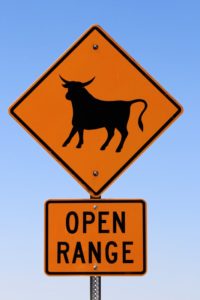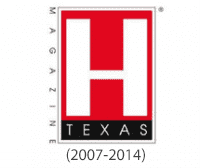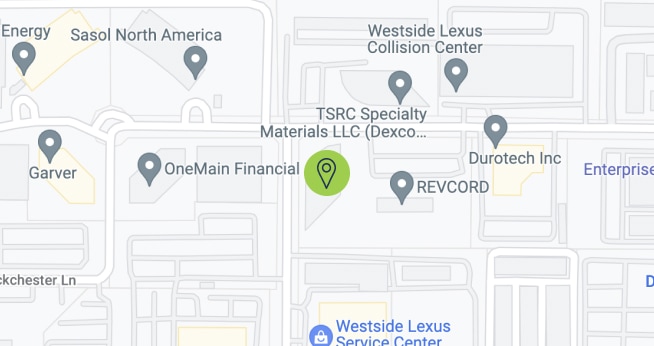Texas Car accidents with livestock

Have you been involved in a Texas car accident involving loose livestock? Collisions involving animals can result in severe injuries and property damage. And unfortunately, liability isn’t always easily determined in these situations. It will depend on the county you were in, the road you were driving on, and the type of animal involved.
Dealing with the aftermath of such a unique accident can be overwhelming, but you don’t have to do it alone. The skilled Houston car accident lawyers at Fleming Law are ready to help. We can guide you through the legal process, handle every aspect of your claim, and work to pursue the compensation you deserve.
Contact Fleming Law today for a free initial consultation to learn more about how we can help.
What Are the Livestock Laws in Texas?
Texas livestock laws set clear rules for owning and managing cattle, horses, and other domestic animals. These laws do not generally require owners to keep their animals under close watch or restraint. However, state law makes exceptions for certain situations.
Stricter rules apply on state and federal highways to ensure that livestock do not wander onto roads and create hazards for drivers. This exception does not include farm-to-market roads, though, which are common in the state. It also only covers the following animals:
- Horses
- Cattle
- Hogs
- Sheep
- Goats
- Mules
- Donkeys
Some counties in Texas have specific statutes requiring livestock owners to prevent their animals from roaming at large. This is especially true if the animals pose a risk to public safety or property.
Is Texas an “Open Range” State?
Texas is an “open range” state, which means that in many areas, livestock owners do not have to fence in their animals. Instead, property owners are responsible for fencing out livestock to prevent them from wandering onto their land. However, there are exceptions to this rule.
Certain areas in Texas have “closed range” laws that require livestock owners to keep their animals fenced in. These exceptions mainly apply to densely populated areas and near busy roads or highways to ensure public safety. Additionally, many counties have adopted local laws requiring livestock to be fenced in to prevent them from roaming freely and causing motor vehicle accidents.
What Is the State and Federal Highway Livestock Liability Law?
State and federal highway livestock liability laws say that if livestock wander onto state or federal highways and cause accidents, the owner of the livestock can be held responsible. These laws are important exceptions to the statewide “open range” rule. The law requires livestock owners to ensure their animals do not stray onto these major roads.
This law aims to protect drivers by reducing the risk of accidents involving animals. If an accident happens because an owner fails to keep their livestock off state or federal highways, they could face legal consequences for any damage or injuries their livestock cause.
How Do Texas Stock Laws Affect a Livestock Accident Claim?
If someone’s car hits livestock on the road, Texas stock laws play a big role in determining who is at fault. Texas divides its land into “open range” and “closed range” zones. In “open range” areas, the law does not require livestock owners to fence their animals. If an accident happens here, the driver might have to rely on their insurance company or pay out-of-pocket for injuries and property damage. However, there are exceptions for livestock accidents on state or federal highways, where different rules apply.
In “closed range” areas or places with local laws that require fencing, a livestock owner could be held liable if their animals cause an accident by straying onto the road. The owner’s failure to properly secure their livestock can be considered negligence in these locations, leaving the owner liable for any injuries or property damage from livestock accidents.
Who Can Be Held Liable in a Car Accident Involving Livestock?
Liability in a Texas car accident involving livestock depends on several factors. If the accident happens in an “open range” area and the livestock owner doesn’t break any local laws, the driver might not be able to blame the livestock owner for the accident. However, if the owner lets their animals wander onto a state or federal highway where stricter rules apply, then the owner could be held responsible.
In “closed range” areas or counties with specific laws requiring animals to be fenced in, a livestock owner can be held liable if their animals cause an accident on the road. Additionally, if someone knowingly lets livestock onto a road as a way to cause trouble or harm, they could also be held accountable for any resulting accidents.
Is There a Time Limit in Texas for Filing a Car Accident Claim?
You have a limited time to file a lawsuit if you’ve been in a car accident involving livestock in Texas. This time frame is usually two years from the day of the accident. If you wait too long and miss this deadline, you lose your chance to file a lawsuit for any injuries you suffered in the crash. This is why it’s so important to contact a Texas car accident attorney as soon as possible.
A knowledgeable lawyer will understand this urgency and can start working on your personal injury claim right away. They’ll gather evidence, talk to witnesses, and handle all the legal paperwork within the required time frame. By getting a lawyer involved soon after the accident, you give them plenty of time to meet relevant deadlines and protect your right to demand compensation for the harm you suffered.
Contact a Texas Car Accident Lawyer
Don’t wait to get the help you need after a car accident with loose livestock in Texas. Contact Fleming Law today for a free initial consultation for the professional support you deserve.












